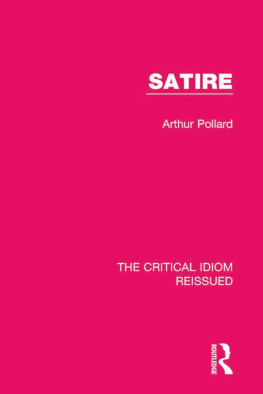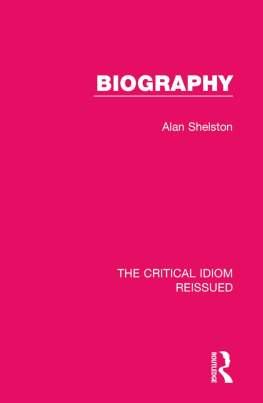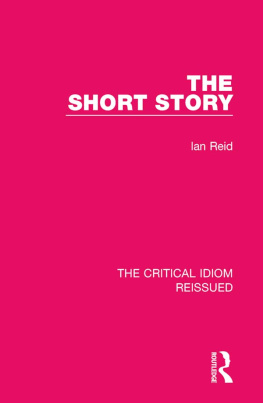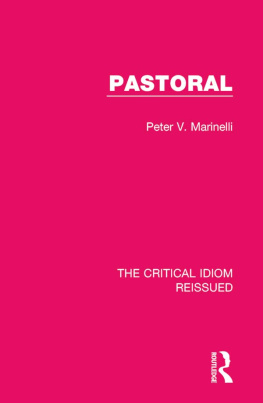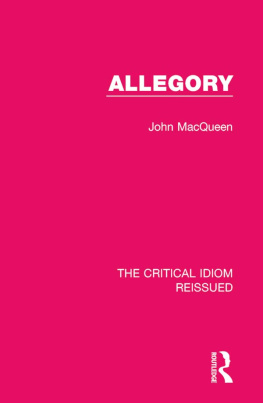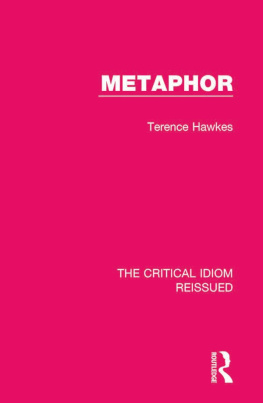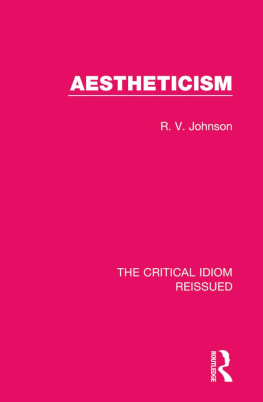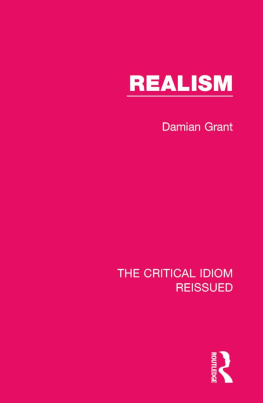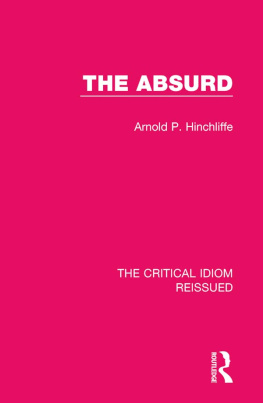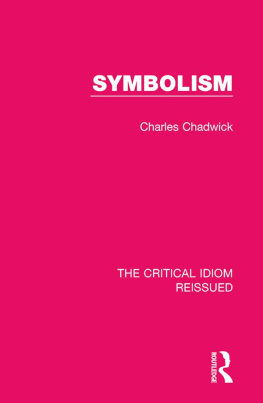Table of Contents
Guide
Print Page Numbers
THE CRITICAL IDIOM REISSUED
Volume 6
SATIRE
SATIRE
ARTHUR POLLARD
First published in 1970 by Methuen & Co Ltd
This edition first published in 2018
by Routledge
2 Park Square, Milton Park, Abingdon, Oxon OX14 4RN
and by Routledge
711 Third Avenue, New York, NY 10017
Routledge is an imprint of the Taylor & Francis Group, an informa business
1970 Arthur Pollard
All rights reserved. No part of this book may be reprinted or reproduced or utilised in any form or by any electronic, mechanical, or other means, now known or hereafter invented, including photocopying and recording, or in any information storage or retrieval system, without permission in writing from the publishers.
Trademark notice: Product or corporate names may be trademarks or registered trademarks, and are used only for identification and explanation without intent to infringe.
British Library Cataloguing in Publication Data
A catalogue record for this book is available from the British Library
ISBN: 978-1-138-21971-7 (Set)
ISBN: 978-1-315-26975-7 (Set) (ebk)
ISBN: 978-1-138-23192-4 (Volume 6) (hbk)
ISBN: 978-1-315-31385-6 (Volume 6) (ebk)
Publishers Note
The publisher has gone to great lengths to ensure the quality of this reprint but points out that some imperfections in the original copies may be apparent.
Disclaimer
The publisher has made every effort to trace copyright holders and would welcome correspondence from those they have been unable to trace.
Satire
Arthur Pollard
First published 1970
by Methuen & Co Ltd,
11 New Fetter Lane, London EC4
1970 Arthur Pollard
SBN 416 17230 x Hardback
SBN 416 17240 7 Paperback
This book is available in both hardback and paperback editions. The paperback edition is sold subject to the condition that it shall not, by way of trade or otherwise, be lent, re-sold, hired out, or otherwise circulated without the publishers prior consent in any form of binding or cover other than that in which it is published and without a similar condition being imposed on the subsequent purchaser.
Distributed in the U.S.A.
by Barnes & Noble Inc.
for BONAMY DOBRE
most inspiring of teachers
Contents
This volume is one of a series of short studies, each dealing with a single key item, or a group of two or three key items, in our critical vocabulary. The purpose of the series differs from that served by the standard glossaries of literary terms. Many terms are adequately defined for the needs of students by the brief entries in these glossaries, and such terms will not be the subjects of studies in the present series. But there are other terms which cannot be made familiar by means of compact definitions. Students need to grow accustomed to them through simple and straightforward but reasonably full discussions of them. The purpose of this series is to provide such discussions.
Some of the terms in question refer to literary movements (e.g., Romanticism, Aestheticism, etc.), others to literary kinds (e.g., Comedy, Epic, etc.), and still others to stylistic features (e.g., Irony, The Conceit, etc.). Because of this diversity of subject-matter, no attempt has been made to impose a uniform pattern upon the studies. But all authors have tried to provide as full illustrative quotation as possible, to make reference whenever appropriate to more than one literature, and to compose their studies in such a way as to guide readers towards the short bibliographies in which they have made suggestions for further reading.
John D. Jump
University of Manchester
The proper study of Mankind is Man
Sole judge of Truth, in endless Error hurld:
The glory, jest and riddle of the world.
(Pope, Essay on Man II. 2, 1718)
Tremble and turn pale
When Satire wields her mighty flail.
(Charles Churchill, The Ghost, III. 9256)
The satirist is not an easy man to live with. He is more than usually conscious of the follies and vices of his fellows and he cannot stop himself from showing that he is. He is in a difficult position, for he can so easily lay himself open to the charge of moral superiority or even of hypocrisy if people think that they see in him the faults he condemns in others. If he escape these charges, he may still have to counter that of mere personal animosity against his victims, of being a mean spiteful little wretch, as Humbert Wolfe described Pope (Notes on English Verse Satire, 1929, p. 105). Like the preacher, the satirist seeks to persuade and convince, but his position in relation to those he addresses is more delicate and more difficult than that of the preacher. The latter seeks primarily to make his hearers accept virtue; the former must make his readers agree with him in identifying and condemning behaviour and men he regards as vicious. These men are our fellow-beings, and the vast majority of us would prefer not to condemn, if only because we recognize that There but for the grace of God go I. The satirist may seem to condemn too easily, even to enjoy doing it. His enthusiasm with verbal bludgeon, rapier or mighty flail is often the evidence of such enjoyment. He asks us to admire the skill with which he uses these weapons, to recognize him as an artist and satire as an art.
This desire, however, is usually implicit. Though he may enjoy his talent and may hope that we will enjoy it too, the satirist normally avows a more serious intent. Dr Johnson in the Dictionary defined satire as a poem in which wickedness or folly is censured. Dryden and Defoe went further than this, the one in They both believe that satire can heal and restore, even though Defoe is rather doubtful of his own contemporaries. With his characteristic pessimism Swift had fewer doubts. In the preface to The Battle of the Books (1704) he wrote:
Satire is a sort of glass, wherein beholders do generally discover everybodys face but their own, which is the chief reason for that kind of reception it meets in the world, and that so very few are offended with it.

